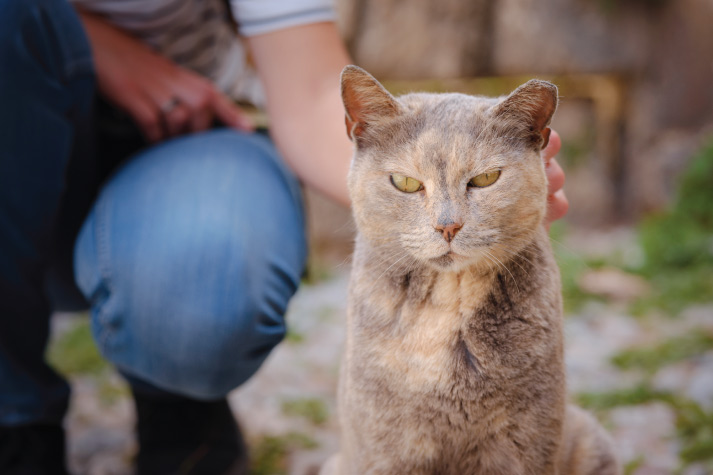


05 Jan
Cats are one of the most popular choices for a pet in 2024. As time has gone on, cats have had their lifespans extended thanks to preventive measures, improved nutrition, and advancements in cat healthcare. Given that cats now live for longer than ever before, it’s only natural cat owners will want to learn about the care their senior friend requires.
As with any living being, cats and their bodies undergo a series of changes as they age. Here are a few things to look out for in your senior or aging feline.
While this depends on case to case, distress can arise due to several factors. Disease, discomfort, or a change in environment can all contribute to distress in an older cat. If your cat is ill, they may be uncomfortable, and you should consult your vet immediately if you notice any sudden changes in behavior (like withdrawal).
At other times, it can be due to their handling and environment. Thanks to conditions like osteoarthritis, cats
develop joint stiffness which can reduce motion and make moving about difficult in general. A cat suffering from
such a condition will usually want to be left alone and not handled too much, which could cause distress. A change
in environment thanks to pet travel can cause distress due to a lack of familiarity; pets are
creatures of habit at the best of times, meaning a change in sights and smells will usually cause
distress.
In the end, no two pets are exactly alike, and neither are their causes of discomfort.
Schedule annual vet check-ups so you can compare your cat’s health across visits and diagnose any problems
that may potentially pop up. Consult your vet for advice regarding your cat’s behaviour, habits, and
discomforts (if any).
There are a few conditions that are exacerbated by age and are commonly found in senior or older cats:
Cats are independent animals. As such, they will not respond very well to any form of change, which is why you should introduce any changes in a slow and steady manner. In terms of their surroundings, their food/water bowls, furniture, and beds should be in a familiar and recognizable place.
Their bowls should always be full of water and a high-quality meal; if you’re unsure about how to alter your senior cat’s diet, you can head to your vet for a list of safe and healthy options. Your vet can also tailor your cat’s diet if they are a picky eater or have been disinterested in meals lately.
You should also ensure your older cat has a pet microchip in Dubai, as the local municipality will require you to. You should also be mindful during pet travel, and only travel if you must, as longer distances can be taxing on your older pet. If you’re travelling internationally, make sure to get a rabies titer test conducted before doing so.
In the end, cats are independent by nature which can make caring for them challenging at times. The best thing you can do as a pet parent is stay vigilant, schedule regular checkups, and implement lifestyle changes in a gradual manner. Provided you are patient with your senior cat, mindful of their needs, and vigilant in spotting any inconsistent behaviour, you should have no issues whatsoever.

AUTHOR’S BIO
ARSH BHARDWAJ
I am passionate about language, storytelling and the human urge to connect Having paid close attention to marketing and branding as a craft for some time, I'm eager as ever to indulge my passion for prose.